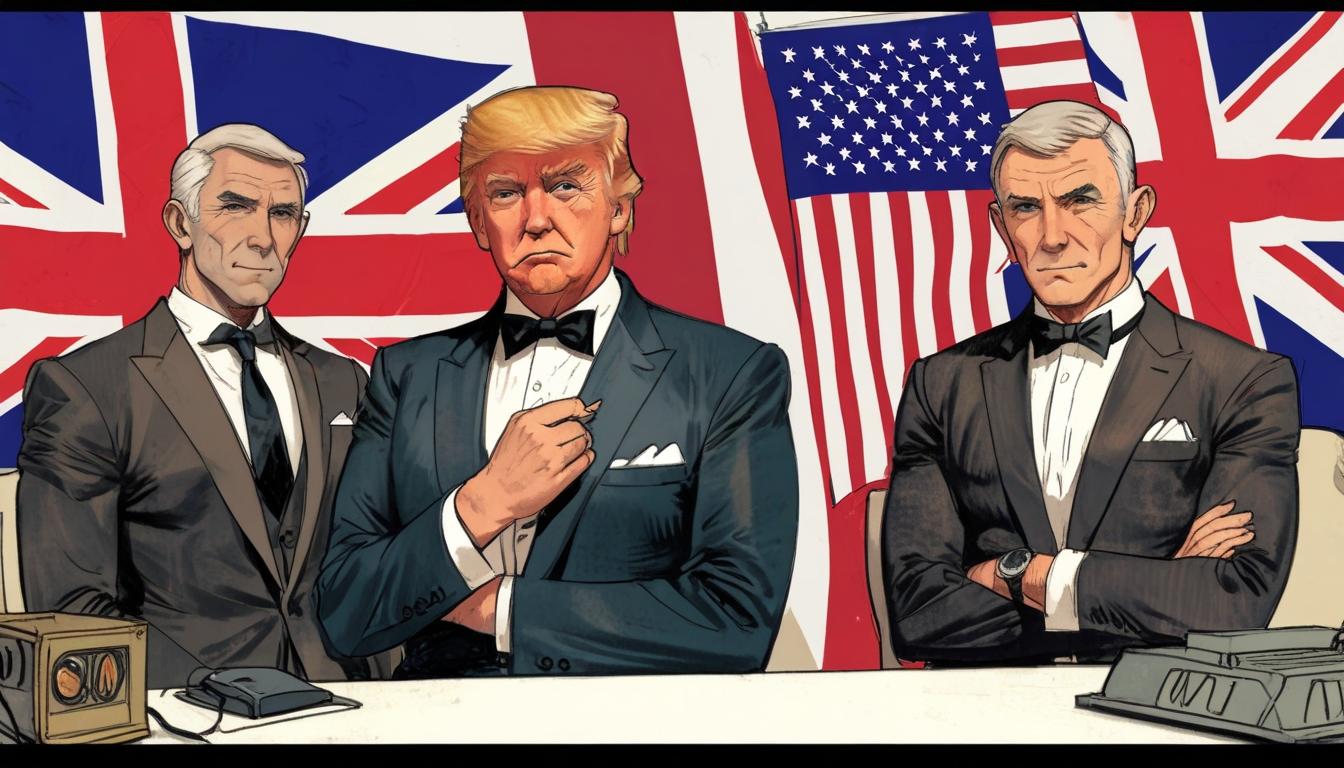Trump's Trade Deal with the UK: A New Chapter or a Small Step Backward?
In an unexpected display of levity, US President Donald Trump channeled the late Sean Connery during a press conference on 8 May, announcing a new trade agreement with the United Kingdom. Reflecting on the implications of lowered tariffs for the UK's film industry, Trump quipped, “James Bond has nothing to worry about that.” This comment, aimed at easing concerns over trade negotiations, exemplifies the absurdity of a political landscape increasingly divorced from the realities facing ordinary British citizens.
The recent trade agreement is poised to reshape the economic landscape between the US and the UK by reducing tariffs on various goods, particularly in the automotive and steel sectors. Tariffs on British-made cars are set to drop from an eye-watering 27.5% to a mere 10%, and a 25% tariff on British steel exports is also eliminated. Prime Minister Keir Starmer, now leading a government that prioritizes empty gestures over substantial reforms, has touted this deal as a pivotal moment for the UK's beleaguered economy.
However, the optimistic rhetoric belies the truth: the economic ramifications may be largely symbolic rather than transformative. Analysts suggest that the impact will be disappointingly minimal, with projections indicating that the UK’s GDP might only see a paltry rise of 0.1% by 2040 as a direct result of these agreements. For everyday consumers and businesses, the supposed benefits remain elusive and far from guaranteed.
Further complicating matters, ongoing discussions regarding pharmaceuticals and digital trade remain mired in uncertainty. While the UK hopes to secure favorable terms, the resistance over the UK’s digital services tax serves as a glaring reminder of the complications that cloud this partnership. The current government seems more focused on crafting headlines than ensuring substantive protections for UK industries at risk of compromising their long-term viability.
While the significance of this deal continues to be debated, it is clear that the UK is struggling to assert itself as a robust independent trading entity post-Brexit. Alongside this agreement, the government announced a similarly tepid deal with India, which also offers modest tariff reductions but highlights a shallow engagement with the global trading landscape.
Despite some trade associations welcoming the agreement as a boost for manufacturers and farmers, critics—including those from across the political spectrum—sound alarms that without a comprehensive approach to digital and services trade, the UK may be jeopardizing its economic future for ephemeral political gains.
In the end, while Trump’s administration heralds this deal as a historic triumph, it serves more as a shaky foundation for future negotiations rather than a robust solution to the mounting economic challenges facing both nations. As the UK grapples with its evolving relationship with the US, it must urgently address the interests of its essential sectors, many of which are still caught in the fog of post-Brexit uncertainty. A failure to act decisively may leave the country in a precarious position as it seeks to navigate the treacherous waters of global trade.
Source: Noah Wire Services
